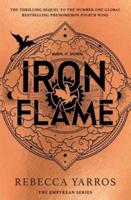Publisher's Synopsis
In Land and Blood, his second novel, the Algerian-Kabyle writer Mouloud Feraoun offers a detailed portrait of life for Algerian Kabyles in the 1920s and 1930s through the story of a Kabyle-Berber man, Amer. Like many Kabyle men of the 1930s, Amer leaves his village to work in the coal mines of France. While in France, he inadvertently kills his own uncle in an accident that sets in motion forces of betrayal and revenge once he returns home. Unlike The Poor Man's Son, his first fictional work, Land and Blood is not autobiographical but is rather the first in a series of novels Feraoun planned to write about immigrant ties between France and Algeria in the years leading up to World War II. Through Amer's story, Feraoun unveils what daily life was like in a poor village of colonial-era Algeria. Published in 1953, a year before the outbreak of the Algerian War, Land and Blood provides a fascinating account of Muslim, Berber-Arab social, cultural, and religious practices of rural Algeria in the pre-independence era.







